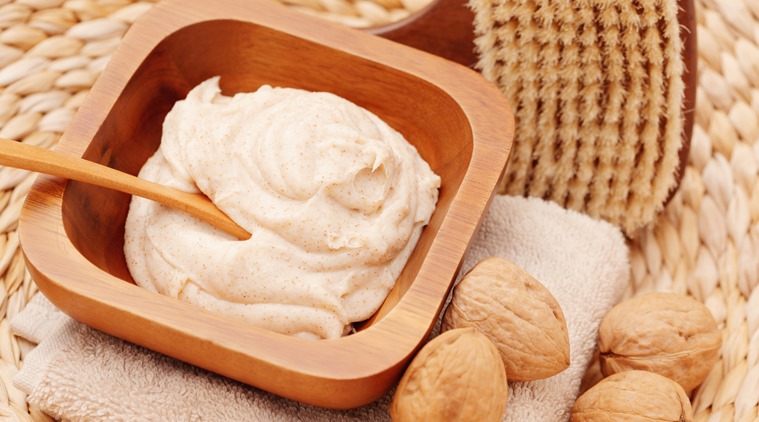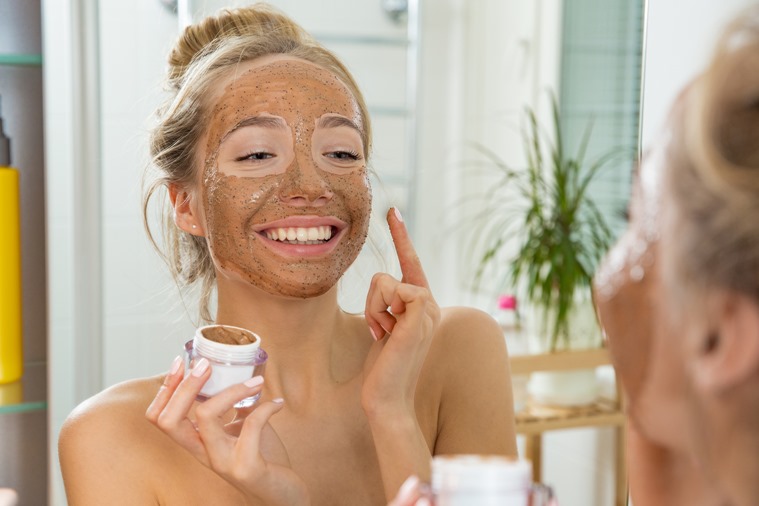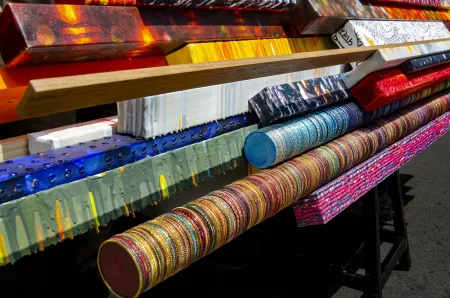- India
- International
Why walnut scrubs are not good for your skin
Walnut scrubs look like they are the best option out there to get skin that is smooth and clean. But is it really good? Read on to know more.
 A harsh facial scrub can make the skin more prone to dryness and micro-abrasions, resulting in irritation and inflammation. (Photo: Thinkstock Images)
A harsh facial scrub can make the skin more prone to dryness and micro-abrasions, resulting in irritation and inflammation. (Photo: Thinkstock Images)
Remember the beauty scene going into a tizzy as Kylie Jenner launched her skin care brand? But within 24 hours, the line was already caught in controversy, with the Kylie Skin Walnut Face Scrub, the walnut-based exfoliating cleanser sparking concerns about damaging the skin.
As a food, walnuts are packed with numerous health benefits. It’s also believed that the nut is equally good for the skin and has many rejuvenating benefits, especially in the form of a scrub. But is it really so?
Walnut face scrubs, as the name implies, includes small particles of the walnut shell. How it works is pretty simple: it exafoliates the skin, removing dead cells from the surface. Walnut face scrubs can, however, be harmful to the skin since its texture can be too harsh, especially for the face resulting in minor tears. Using a walnut scrub as an exfoliator can, therefore, cause dry skin, or even lead to unwanted peeling.
Are walnut facial scrubs damaging to your skin?
 But when it comes to the walnut – its powder is too harsh an ingredient. (Photo: Thinkstock Images)
But when it comes to the walnut – its powder is too harsh an ingredient. (Photo: Thinkstock Images)
As with most things, it is imperative to use facial scrubs in moderation. Too much of exfoliation will not give you the smooth skin you are aiming for, but will rather strip off the natural oils and protective layer. And when it comes to walnuts, the tiny bits are too harsh of an ingredient.
Many facial scrubs use crushed walnut shells as their main ingredient, which can cause micro-tears in the skin. And while yes, your skin is can repairing itself, over-scrubbing isn’t beneficial for any skin type. After all, if the skin is scrubbed repeatedly, it begins to protect itself by forming an even thicker layer of dead skin cells on the surface leaving you trapped in a vicious cycle of scrubbing only more and more.
If a facial scrub is too harsh and contains irritating ingredients or is overused, it can leave the skin more prone to dryness, resulting in irritation and inflammation.

ALSO READ | Got combination skin? The CTM routine can save you
Should you be using a facial scrub at all?
It all depends on your skin type and its needs. Experts categorise facial scrubs into two categories; physical and chemical.
While physical exfoliants include ingredients like jojoba beads, clay, sugar and salt. These methods physically scrub your skin clean. Chemical exfoliants, meanwhile, use acids to exfoliate, the most common being glycolic acid, lactic acid and others like salicylic acid.
Which scrub is better: physical or chemical?
Generally, for your face, chemical exfoliants are the best option for ridding the skin of dirt and grime, without causing any irritation. In fact, while the term ‘chemical’ might sound a lot like harsher exfoliation, the effect is quite the opposite. Chemical exfoliation is gentler on your skin since it doesn’t involve scrubbing. However, physical exfoliation can be too harsh on the skin if not done properly, or done too frequently – like using walnut facial scrubs.
ALSO READ | Combat dull skin during winters with these tips
Can you scrub your face too much?
No matter what exfoliant you’re using, there is a high possibility of always overdoing it; trust us your face won’t be happy about it.
Over-exfoliation causes irritation and inflammation like acne and makes you more susceptible to loss of moisture and disrupting the natural skin barrier. Moreover, the dead skin cells start accumulating more than ever. As mentioned above, it begins to protect itself by forming an even thicker layer of dead skin cells.
Experts suggest limiting exfoliation to once or twice a week. Remember to soothe and protect your skin post-exfoliation by slathering on moisturisers and sunscreen.
Apr 23: Latest News
- 01
- 02
- 03
- 04
- 05

























